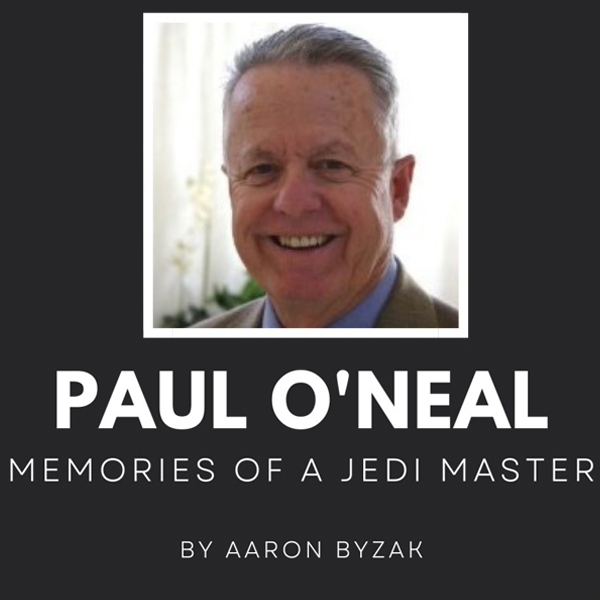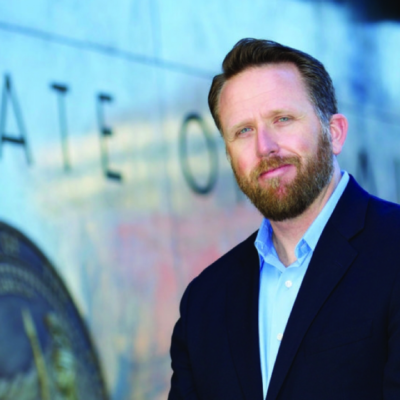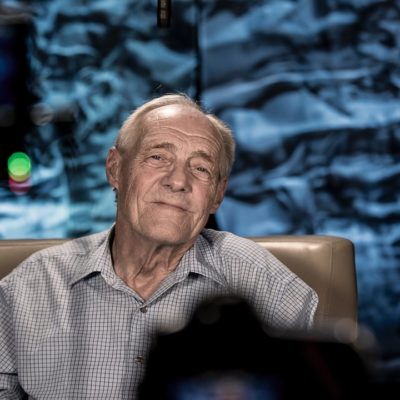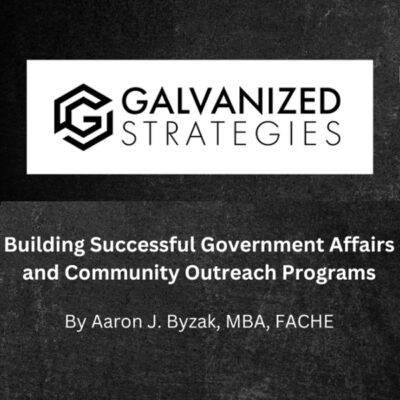When I started my first full time job in politics in 2003 after leaving Emergency Medical Services, I was taken under the wing of a longtime, respected political staffer and lobbyist who would serve as my first mentor in the field. He knew which way was up, so to speak.
My first day on the job, he invited me to walk around the corner from the Senator’s district office in Carlsbad to grab lunch at a local tavern. We arrived before the noon rush and were the only customers in the place. A young waitress seated us and I picked up a menu.
His first lesson wasn’t overt; rather, I simply watched and learned how he talked to people. In this case, our waitress.
He complimented her, but not in a creepy way. More like the way a father would compliment his daughter. I don’t even remember precisely what words he said to her. It was the way he said it. It was like she was the only person in the world. As a result, even as more and more people entered the restaurant, it didn’t matter — we were her priority. If he wanted more ketchup, this waitress would have taken it from another paying customer and delivered it to him. He was her ONLY customer.
I distinctly remember thinking to myself, “My goodness, this guy is the Jedi Master of schmoozing.”
Thus began a 20 year mentoring relationship — he as a Jedi Master, and me as his Padawan.
We worked together for some time for the Senator, but eventually went our separate ways. However, we stayed close for many years as we both navigated our careers, albeit in different phases given that he had 35 years of work experience on me.
He became like a father to me, and I like a son to him. In fact, whenever I saw him or spoke with him, I’d acknowledge him by saying, “Father,” to which he would reply, “Son.”
I frequently sought him out for advice, and he frequently reached out to me with interesting ideas and opportunities.
In 2014, I created Hazel’s Army, an advocacy organization that helped launch a major legislative reform effort that bore fruit pretty quickly, successfully passing and signing into law 13 pieces of legislation at the state level and another four County policies to protect seniors in assisted living facilities. All were completed in a nine month span.
The next year I decided to follow up that effort by developing an education initiative called GreatGen 2.0 through which the offspring of amazing Greatest Generationers would go to schools and tell their grandparent’s incredible stories. The goal was to show the value of seniors and encourage youth to connect with seniors in their family and community, thereby expanding intergenerational education and respect.
To be sure, it’s not easy to pass legislation or create successful education efforts. It takes tremendous planning, forethought, effective communication, a great network of connections, good timing, and a lot of luck.
I built out the concept of this new education program, created the brand, and wrote the curriculum with the help of an amazing intern. I was ready to roll it out at schools, but thought that it would be helpful if I had endorsement of my program by someone prominent. But who?
Enter my mentor.
One day I’m at work and I get a call from him.
“I’m at the Catfish Club (prominent African American powerbroker club) meeting with Richard Dreyfuss.”
“The actor Richard Dreyfuss?” I clarified. I am a huge fan of the movie Jaws, Close Encounters of the Third Kind, What About Bob, and pretty much everything else he’s made.
“Yes, that one. He is working on a civics education initiative called the Dreyfuss Civics Initiative. It could dovetail with your project. Get down here right now and I’ll introduce you,” my mentor insisted.
So I sped down to the Hall of Champions in San Diego, where the Catfish Club regularly met, and walked in as Richard Dreyfuss was finishing his speech.
My mentor introduced me to Richard and we had a ten minute conversation about what I was working on.
“Hey, what are you doing right now?” Richard asked me. I thought for a moment, well, I should be getting back to work, but when Richard Dreyfuss asks you what you’re doing right now, you go with the flow.
“Nothing,” I replied. “What do you have in mind?”
“We’re going to go take a tour of the Automotive Museum, “ he said, gesturing to my mentor. “You want come with us?’
“Absolutely,” I said, without hesitation.
For the next two hours we walked around the Automotive Museum listening to fascinating stories about all of the luxury and exotic cars Richard used to own, many of which were in the museum. Very little more was said about civics education or my program. We just walked and talked.
As the tour came to a conclusion, Richard said, “Hey, would you like to be my VIP guest at a speech I’m giving tomorrow in La Jolla?”
“Absolutely,” I said. Clearly I couldn’t think of any words other than “absolutely.”
The next morning I drove down to La Jolla and joined Richard and my mentor at a public speech he was giving on the importance of civics education in public school. Richard was highly knowledgeable on the subject and spoke passionately.
When the speech was over, Richard asked, “Hey, would you like to join us for lunch?”
What do you think I said?
“Absolutely.” I said “absolutely,” again.
So we drove up to a Jewish deli that was not far from the speech, grabbed a booth, and ordered our food. For the next two hours Richard regaled us with stories of his childhood in New York, his Communist parents, his move to the west coast, and early days in show business.
Towards the end of the meeting, I broached the subject of my GreatGen 2.0 program. I explained what we had achieved the year before, legislatively, and provided an overview of my education program, the story I was going to tell in schools, and my goals. Richard agreed to endorse the program.
When the waitress came around to give the check, she placed it on the table in the middle of all three of us.
I looked at the check, then looked at my mentor. He was looking the other way.
I then looked to Richard, millionaire star of stage and screen. He looked straight up to the ceiling as if he was studying the tiles and light fixtures. This was clearly my bill to pay.
“Don’t worry, gentlemen, I’ll handle this one,” I said with a smile.
The endorsement of the Dreyfuss Civics Initiative really helped. We got into schools, providing entertaining, educational presentations for more than 7,000 students over the coming years.
And it wouldn’t have been possible without my mentor.
As the years went on, my career progressed and his began to take a different shape, so we saw less and less of each other. In recent years, we reconnected when I learned that he had suffered some health setbacks.
On March 15th of this year, I received a text message from him: “I will be quick to the point. I have stage 4 prostate cancer.” He continued, “To make matters worse, I also have stage 4 Parkinson’s.”
I immediately drove to where he was being cared for on hospice. “Father,” I said when I walked in the room. “Son,” he replied.
Despite not being able to walk and being bed bound, his handshake was still very firm and he was in good spirits. We talked for some time and he treated me as he did that waitress during our first lunch meeting — like I was his own offspring.
As I was preparing to leave, to lighten the mood I said, “Are you sure about this diagnosis? You’re the healthiest looking hospice patient I’ve ever seen.” He was a man who projected strength, even in his most difficult times.
I visited him several more times over the next two months. On my third visit, I brought him something.
In recognition of his tremendous efforts to elevate Hazel’s Army and GreatGen 2.0, I presented him with a mounted Distinguished Community Service Medal from Hazel’s Army. Only eight other people had ever received that honor. It was the least I could do.
On April 22nd I texted his ex-wife, who was serving as his caregiver, and asked, “How’s he doing?”
She wrote back, “(He) was just talking about you this morning and how proud he is of you.”
This evening as I was multitasking, preparing for a phone call for work, I received a text message from her informing me that he passed away peacefully this morning.
As I sit here writing this memorial, I can’t begin to express how much he impacted my life and the important role he played in my professional and personal development. He was more than a mentor. He was, in many ways, like my father, and I was like his son.
I teach classes on mentoring and for years have espoused the benefits that a protege receives from a good mentoring relationship: Knowledge and ideas. Personal development. Connections and networking. Relationship.
Of course, I learned this from my mentor, my Jedi Master: Paul O’Neal.
I will certainly miss Paul and our great conversations, but will always remember his sage advice, his calm and pleasant demeanor, his beaming smile, his strong grip, and his focused commitment and dedication to our mentoring relationship.
Rest now, my friend — we’ll take it from here.
